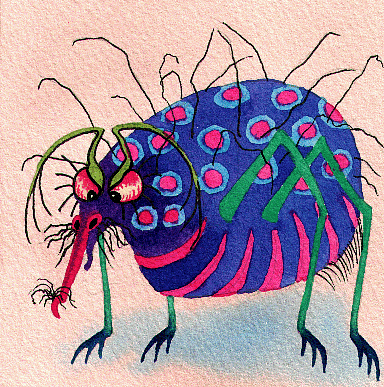
The New York Times reports that Wisconsin has just appointed the cheese-making bacteriumLactococcus lactis as its official state microbe. It's the first state to do so, which got us thinking: what should the other states' microbes be?
Based on its popularity there, California should surely elevate the botox bacterium Clostridium botulinum to the level of state microbe.
And the retired communities of Florida would appreciate the 250-million-year-old Lazarus bacterium, Bacillus permians, as their pet bug.
For Alaska: the ice-age bacterium Carnobacterium pleistocenium.
The "indestructible" bacterium Deinococcus radiodurans that (probably) survived the Trinity A-bomb test is a worthy emblem for New Mexico, while the titchy state of Rhode Island would feel mighty next to a nanobacterium.
On account of Salt Lake City, Utah gets the salt-loving Haloarcula marismortui, while vampire-friendly Louisiana gets the blood-consuming malaria parasite Plasmodium falciparum, which was once common in the state.
The oil-eating bacterium Syntrophus might be useful in Texas; the garden state, New Jersey, famous for its marshland garbage dumps, gets sewage-eating methanogenic bacteria andWashington state might appreciate the rain-making bacterium Pseudomonas syringae.
Nevada, home of the neon glow of Las Vegas, gets the flashing lights of Vibrio fischerii, and if the creationists in Kansas can be shouted down then rationalists will delight in the MRSA "superbug", as an example of evolution in action.
Feel free to suggest your candidates for the remaining states...